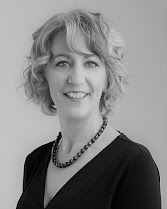At the heart of adult learning and education (ALE) lies a fundamental question: how do we best support adult learners, particularly those from vulnerable populations, to achieve meaningful educational outcomes? The Working Group 4 (WG4) on Understanding and Integrating Adult Learning Principles into Learning Settings and Professionalization of the Field, led by mentor André Schlӓfli (IACEHOF 2011), convened at the 2024 Hall of Fame Induction Conference in Florence to tackle this question.
The session opened with a compelling presentation by the leadership of the Coalition on Adult Basic Education (COABE-https://coabe.org/), a prominent U.S.-based nonprofit that provides professional development, advocacy, and leadership for adult basic education practitioners across all 50 states. Their work served as an inspiring case study for how ALE organizations can elevate both learners and the educators who serve them.
Championing Learners as Leaders
COABE's initiatives to empower adult learners as leaders and advocates in their own communities were a key focal point. These examples challenged the group to consider professionalization not just in terms of credentials and training for educators, but also in how ALE institutions recognize and uplift learners' agency.
Facilitated Dialogue on Professional Development and Practice
Following the opening presentation, Judith Alamprese and Zoltán Várkonyi (https://basicskills.eu/) facilitated an in-depth discussion that split into two subgroups. Each focused on critical elements of educator development and learner success:
1. Skills and Knowledge for Working with Vulnerable Populations: Participants identified the need for adult educators to understand learners' lived experiences and challenges, whether related to socioeconomic status, educational history, trauma, incarceration, or cultural background. Emphasis was placed on equipping educators with cultural competence, trauma-informed approaches, and adaptive instructional strategies.
2. Organizational Conditions that Support Learning: The second subgroup focused on how institutions can create enabling environments for adult learners. This included establishing feedback mechanisms, promoting learner agency, and fostering lifelong learning strategies. There was agreement that ALE providers must integrate support services and community engagement into their operational frameworks.
Identified Areas for Professional DevelopmentThe Learner as the Centerpiece
The working group outlined several high-priority areas for improving educator preparation and ongoing support:
- Understanding Learner Backgrounds: Adult educators must be trained to assess and respond to the motivations, skills, and learning barriers each learner brings.
- Continuous Feedback Loops: Educators should learn how to offer constructive, responsive feedback that builds learner confidence and capacity.
- Developing Learning Strategies: Adult learners need guidance in becoming self-directed, reflective learners capable of navigating diverse learning environments.
- Fostering Learner Agency: Programs must empower learners to set goals, make decisions, and advocate for their learning journeys.
- Contextualizing ALE Delivery: Educators need training tailored to specific settings—workplaces, correctional institutions, community centers, or family literacy programs—each with its challenges and opportunities.
The central takeaway from WG4 was clear: professionalization in ALE must start and end with the learner. Whether instruction occurs in a university classroom, an adult education center, or a prison facility, the learner’s needs, interests, and aspirations must be the focal point.
This learner-centered philosophy challenges traditional notions of professionalism. Instead of emphasizing formal qualifications, it highlights responsiveness, empathy, and context-sensitive pedagogy as hallmarks of quality in adult education.
Proposed Collaborations and Future Steps
The group recognized that the scope and diversity of ALE settings make it difficult to capture all relevant themes in a single meeting. Therefore, they proposed:
- A series of seminars focused on refining professional development strategies for specific contexts and learner groups.
- Collaborative writing projects, including journal articles that explore new directions for ALE professionalization.
- Ongoing dialogue, with the potential for establishing a long-term network to share tools, resources, and insights.




